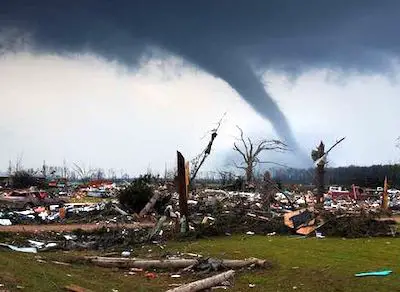It isn’t surprising that some people get this phrase wrong and assume that it is ‘wreck havoc’. After all ‘havoc’ and ‘wreckage’ usually belong together. However, the correct spelling is ‘wreak havoc’, which means, ‘inflict or create damage’.
Wreak havoc
What's the meaning of the phrase 'Wreak havoc'?
What's the origin of the phrase 'Wreak havoc'?
in weather reports of hurricanes.
‘Wreak havoc’ is a late 19th century expression. These days we only ever find the word wreak with its friend havoc – when did you hear of anyone wreaking anything else? However, in the 18th century and before, before then people wreaked other things.
Various well-known writers created versions of the phrase, for instance Percy Bysshe Shelley in his poem Laon and Cythna, 1817:
With thee. if thou desirest, will I seek Through their array of banded slaves to wreak Ruin upon the tyrants.
And again, in Rosalind & Helen, 1819:
That poor and hungry men should break The laws which wreak them toil and scorn, We understand.
Charles Dickens also used a variant of ‘wreak havoc’ in Our Mutual Friend, 1865:
She always was, and she always would be, wreaking destruction upon somebody or something.
It was another famous writer who put the expression ‘wreak havoc’ into wide circulation, in one of her best-known works The Murder of Roger Ackroyd, 1926:
Annie is not allowed to wreak havoc with a dustpan and brush.
Christie didn’t coin the phrase, it was already in occasional colloquial use by the start of the 20th century, but she certainly gave it a boost. The use of any expression in a Christie novel would be enough to bring it to a large readership. This novel in particular, which has been made into a stage play, several films, a radio play, several television series and a graphic novel, has been seen and read by many millions of people.
Where the first usage of ‘wreak havoc’ came about we can’t be sure. There is a citation of it in the Irish newspaper The Cork Examiner, in a report of the Orange Riots in New York in July 1871:
It might have been possible to have made a general levee of armed citizens who should wreak havoc upon the lower orders in their own suburbs.
Let’s conclude with another oddity concerning ‘wreak havoc’. It’s easy to think that the past tense of the phrase is ‘wrought havoc’. Indeed ‘wrought havoc’ is found in print in the 19th century much more frequently than ‘wreak havoc’ and it isn’t far-fetched to suggest that ‘wrought havoc’ may have pre-dated ‘wreak havoc’.
Whichever phrase came first there was a misunderstanding; ‘wrought’ isn’t the past tense of ‘wreak’. The correct past tense is ‘wreaked’, so we should properly say (as many now do) ‘wreaked havoc’, not ‘wrought havoc’.
The history of “Wreak havoc” in printed materials
Trend of wreak havoc in printed material over time
Related phrases and meanings
Browse more Phrases
About the Author

Phrases & Meanings
A-Z
A B C D E F G H I J K L M N O P Q R S T UV W XYZ
Categories
American Animals Australian Bible Body Colour Conflict Death Devil Dogs Emotions Euphemism Family Fashion Food French Horses ‘Jack’ Luck Money Military Music Names Nature Nautical Numbers Politics Religion Shakespeare Stupidity Entertainment Weather Women Work
How did we do?
Have you spotted something that needs updated on this page? We review all feedback we receive to ensure that we provide the most accurate and up to date information on phrases.
